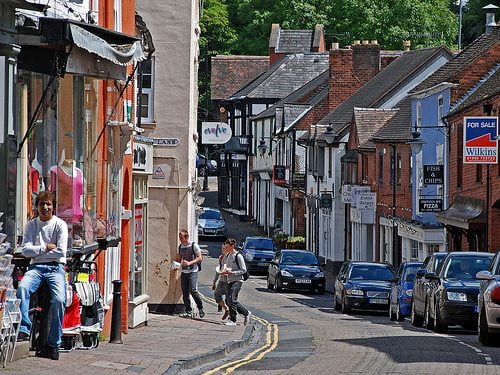

News
A sustainable high street
Mary ‘Queen of Shops’ Portas has outlined her vision for the future of Britain’s high streets before they “disappear forever”. But how sustainable is her plan to bring the high street back to life? Charlotte Reid finds out.
The Portas Review sets out a plan to bring Britain’s high streets back to life.
Mary ‘Queen of Shops’ Portas has outlined her vision for the future of Britain’s high streets before they “disappear forever”. But how sustainable is her plan to bring the high street back to life? Charlotte Reid finds out.
The Portas Review sets out a plan to bring Britain’s high streets back to life.
It wants to put the heart back into town centres and improve Britain’s towns and cities whilst getting them to work better as businesses. Portas says, “I fundamentally believe that once we invest in and create social capital in the heart of our communities, the economic capital will follow“.
But did she consider the impact of the high street on the environment?
Portas came up with 28 recommendations. These range from giving more support to new local businesses to giving people a voice about their town centres.
A number of these recommendations are to ease business and planning restrictions for new shops and encourage them to open next door to the well-known high street shops. To help them out they will be mentored by larger retailers to get more support and a helping hand for their businesses.
Towns are told they should work on becoming attractive and safer areas to work in and visit.
The Portas Review emerged after the news, in May 2011, that town centre vacancy rates had doubled over the past two years. Towns up and down the nation looked closed which led to a drop in footfall in the high streets.
It’s not only the shops being unoccupied that make the high street look unappealing. It is the empty, unused and run down spaces above the shops.
Recently, Croydon Council asked traders and businesses to let the flats above their work. These flats were then offered to homeless people to help get them into permanent housing.
So this not only helps people out by giving them a home, and making the high street look more alive, it will help to create the community spirit that Portas wants back in the high street.
The review does call for local areas to develop free car parking schemes – but why don’t we consider park and ride schemes? And if more people are living above the high street, then some of them are already there.
Nowadays, rather than visiting individual shops in a town centre it is easier to drive to the nearest supermarket or department store and buy everything you need, whenever you want.
We should be encouraging building more around the high street, rather than retail parks. New Economics listed some areas that the Queen of Shops forgot about, including that the power of the supermarkets need to be reined in.
Some of the national chains that dominate our high streets have started making moves towards becoming sustainable. According to the British Retail Consortium (BRC) firms accounting for more than half the UK’s retailers are signed up to the Carbon Trust Standard.
Companies signed up must commit to measuring and reporting their emissions and show that they are making reductions.
The BRC say that John Lewis, Harrods and Selfridges combined have made savings of over £1m by reducing their emissions. Many smaller, local shops, which the report puts a lot of emphasis on, should also be sustainable by not having the same supply chain because they will locally sourcing their products.
Generally, Portas’ review has had good feedback – highlighting areas that need to be looked at – but much more needs to be done.
The high street is in a desperate situation, with shoe shop Barratts’ the latest victim of the economy as they went into administration last week. In order to bring it back to life, it needs a dramatic overhaul, including some of Portas’ insights. But while we are there, why don’t we improve it environmentally as well as financially to create a high street that will last.
If you want to invest in retailers that consider the environment then talk to your financial adviser. Or let us find you one through our online form. If you want to find out more about shopping sustainably then visit the Ethical Superstore.
Photo: Post Box


 Environment12 months ago
Environment12 months agoAre Polymer Banknotes: an Eco-Friendly Trend or a Groundswell?

 Features11 months ago
Features11 months agoEco-Friendly Cryptocurrencies: Sustainable Investment Choices

 Features12 months ago
Features12 months agoEco-Friendly Crypto Traders Must Find the Right Exchange

 Energy11 months ago
Energy11 months agoThe Growing Role of Solar Panels in Ireland’s Energy Future
















